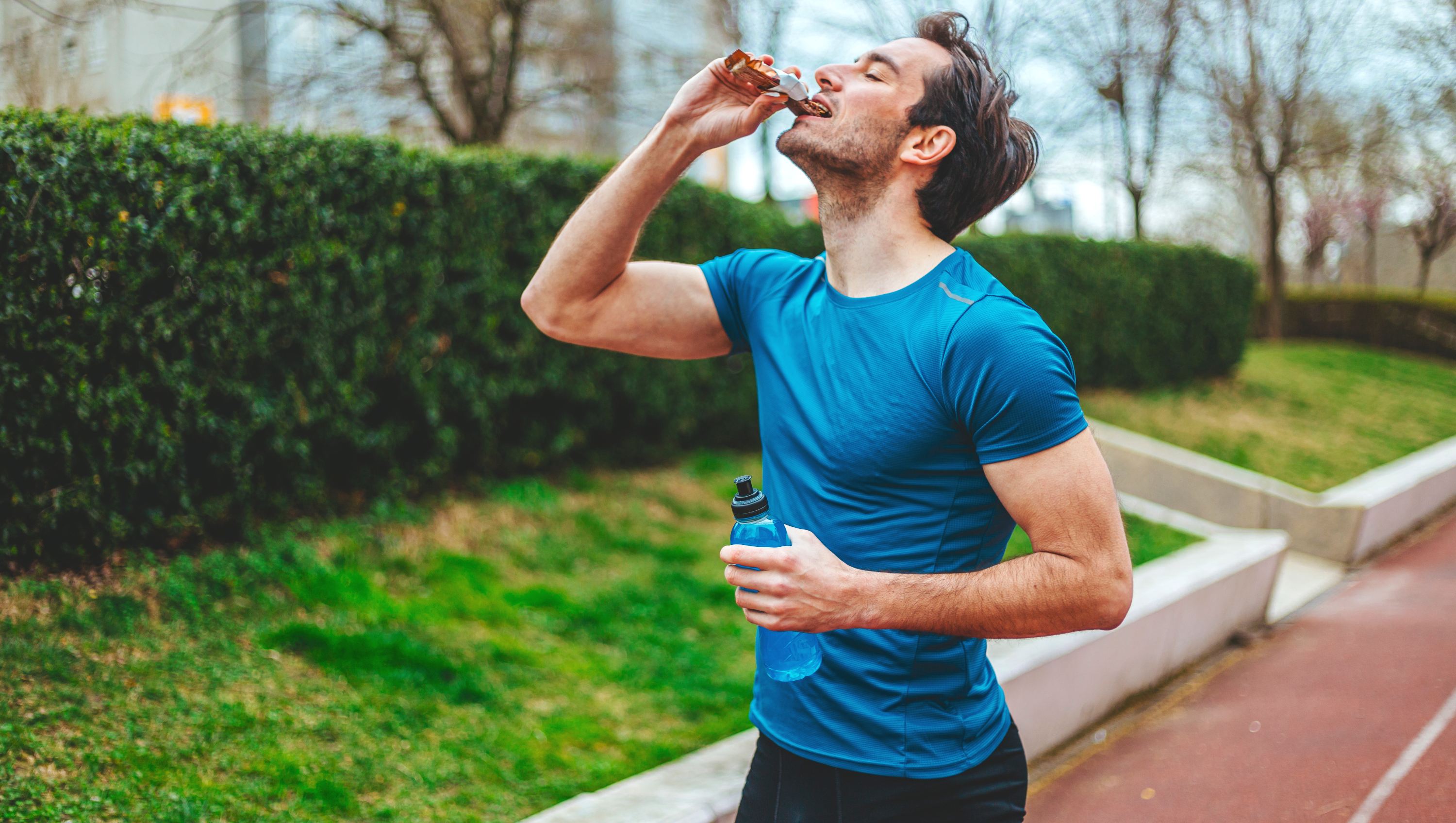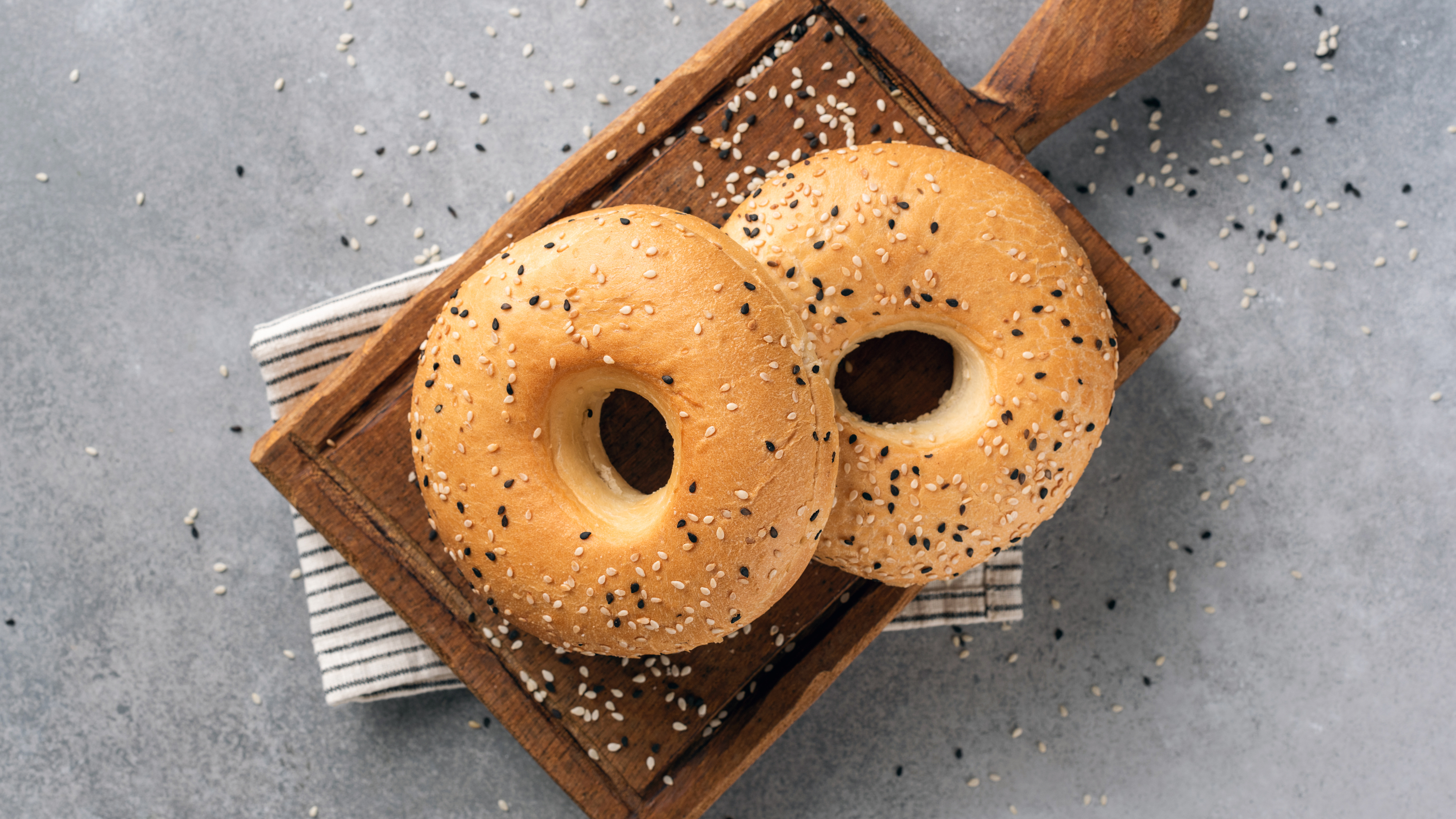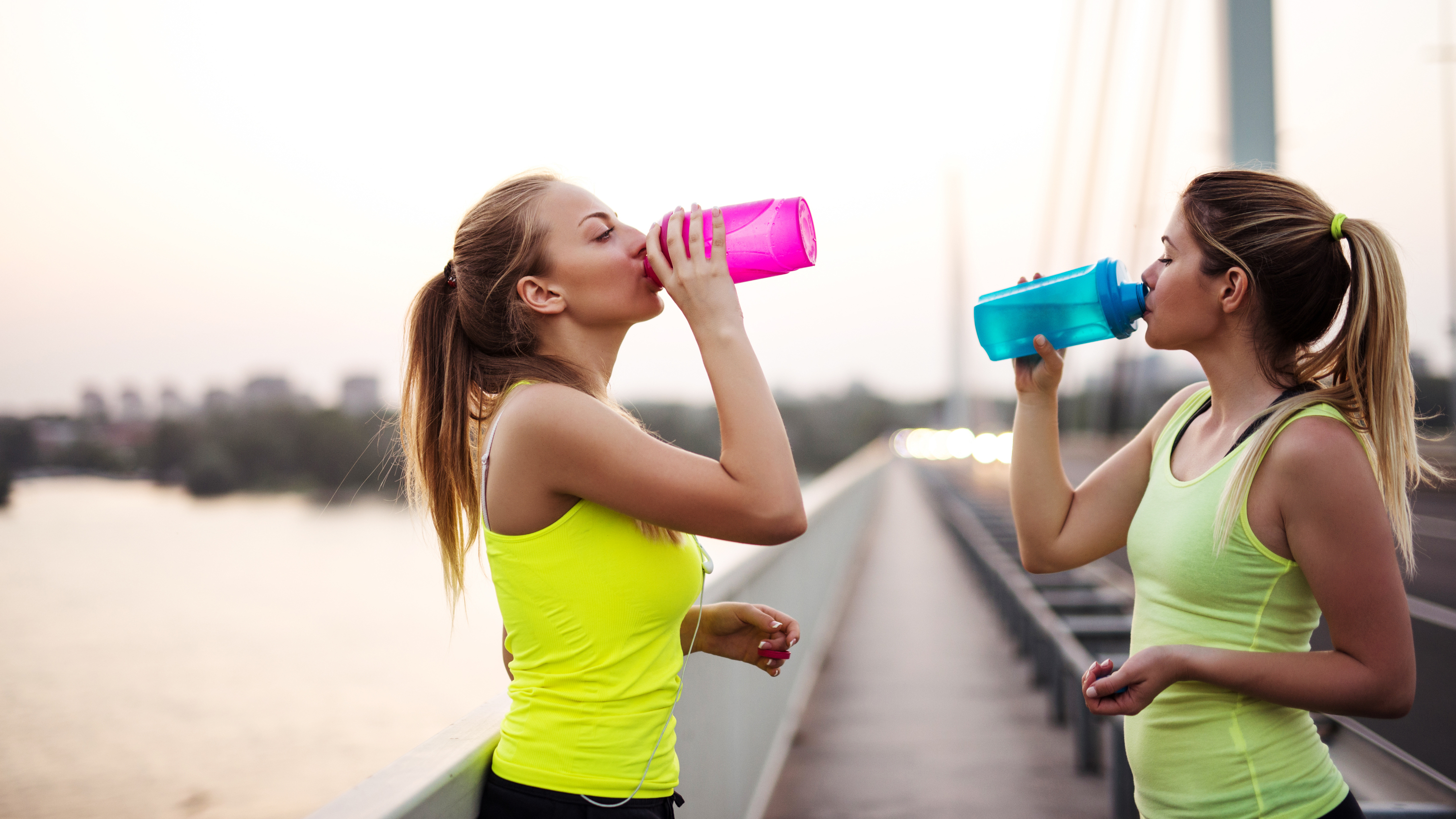
As the excitement (and inevitable nerves) of marathon day approaches, every runner knows that proper nutrition plays a key role in crossing the finish line. Many of us look forward to demolishing a big fat pizza after the 26.2 miles are over. But to make sure you reach those victory slices, it’s a wise idea to make some adjustments to your diet a few days prior to the race to make sure your body is adequately fuelled.
You have most likely already selected the best pair of running shoes to wear during training, now it’s time to look at the best way to shape your diet in the lead-up to the big day. To help unravel any uncertainty surrounding marathon fuelling, we consulted with Registered Sport Nutritionist, James LeBaigue.
Here's what he had to say.
Why is there such a big focus on carbs?
You have probably heard fellow runners discuss something called ‘carb loading’ the week before a big race but want to know what this actually entails.
LeBaigue tells us, “The reason the focus is on carbohydrate and carb loading is that carbohydrates are the predominant energy source during a marathon. Carbohydrates are stored as glycogen in the body, and the average person has around 2000 calories stored as glycogen (at max capacity)."
"We know from research studies that you can fully saturate your glycogen stores in 24 hours if you follow a correct carbohydrate loading protocol.” We’ll find out more about how to do this further down.
According to LeBaigue, “Runners also use fat for energy but fat reserves are essentially unlimited with the average person having over 50,000 calories stored as energy — which is more than enough for several back-to-back marathons.”
When you run out of carbs while running a marathon or long distance event, LebBaigue warns you can ‘bonk’ or ‘hit the wall’. By this, he means your pace may suffer and you might find you need to slow down or stop. It's similar to what can happen if you don't properly hydrate before and during a marathon — hence why I’ve been training with electrolytes for the past year.
When should you begin the fuelling process?
“Until about three days before a marathon, a runner can follow their usual diet, eating enough to account for any exercise they undertake and ensuring they stay hydrated,” recommends LeBaigue.
When you hit that three day run up, he suggests runners swap to a low-fiber diet. “This is because fiber takes longer and is harder to digest and is a big culprit for causing gastrointestinal upset (stomach cramps, bloating, diarrhea) during the marathon.
“By reducing fiber three days out from the race you can reduce the risk of this happening — this can translate into better performance in the marathon.”

When it comes to the carbohydrate loading period, LeBaigue advises consuming between 8-10 grams of carbohydrate per kilogram of body weight. So for a 70kg runner, this would be between 560-700g of carbohydrates (roughly 2800 calories from carbohydrates alone).
“White, simple varieties of carbohydrates are best during the carb load period because they are easily digested and absorbed by the body,” notes LeBaigue, “They usually contain less protein, fat and fiber than their wholegrain counterparts.
The good news for those with a sweet tooth is LeBaigue says this is a fantastic time for confectionary such as sweets like gummy sweets since they have high carbohydrate value but are low in any other macronutrients (fat, fiber and protein). He also gives the thumbs up for sport drinks and bars, fruit juice, granola or "sweet" cereals such as rice puffs.
What foods should you avoid before the marathon?
Avoid high fat, high protein and high fibre foods.
During the carb loading period runners have to consume a large volume of carbohydrates to hit the goal. To make this easier, it’s important to minimize other nutrients to reduce sensations of satiety and fullness.
“Protein, fat and fiber all take longer to break down in the gut and the aim of reducing these other macronutrients in the carb load period is to minimize the risk of GI upset during the marathon,” explains LeBaigue.
He also recommends avoiding full fat dairy during this period, “Which means no to cheese and, importantly, pizza! Whilst pizza is a common carb loading food, it’s full of fat, protein and fibre which actually makes it a poor choice!”.
What should you eat on the morning of the marathon?
The training is done, you’ve upped your carbs, you’ve collected your bib and all you need to do now is face your marathon day. Thankfully, breakfast will be pretty simple. According to LeBaigue a carbohydrate-rich breakfast at least 2 hours before the race is the way to go.
“The further away from the race start time, the more substantial the meal can be. Conversely, the closer to race time, the lighter the meal should be,” he notes.
A minimum of 1g of carbohydrates per kilogram of body weight is recommended according to sports nutrition guidance, and up to 4g of carbs per kilogram of body weight.
LeBaigue provided a small list of common and effective race day breakfasts to have on race day:
- Oats with semi-skimmed milk and banana
- White toast/bagel with jam or honey
- Low-fat rice pudding with jam, honey and/or a banana
- White rice with a protein source e.g. chicken or tuna
- Carbohydrate sports drink

What about during the marathon?
During the race itself, timely fuelling is key. LeBaigue stresses the importance of starting early and aiming for a steady intake of carbohydrates, ideally around 50-80 grams per hour.
“I typically recommend gels for their ease of consumption and portability. You can work out the carbohydrate content of the gel by looking at the 'total carbohydrates' on the packet, and then work out how to reach 50g of carbs per hour."
Practice your nutrition strategy during training, including breakfast and your race day fuelling to avoid surprises on race day. Portable options like gels fit nicely into the best running belts and provide a convenient solution, while caffeine can offer a much-needed boost during the latter stages of the race.
“Caffeine can be fantastic for getting you through the final stages of the marathon,” LeBaigue notes, “If you have practiced using it in training you can use a caffeine sports supplement (included in some gels, tablets or even chewing gum) around the halfway mark to get a boost for the finish.”
The effective dose for caffeine is 1-3mg of caffeine per kg of body weight. For a 70kg athlete, this would be 70-210mg of caffeine in a single dose. Supplements should specify the amount of caffeine that it contains.
Always check the ingredients of any supplements you plan on using and make sure you aren't allergic to anything inside. If you have access to a run coach or someone with qualifications in sports nutrition, consult them for personalized fuelling advice and recommendations.
Best of luck for your marathon!







